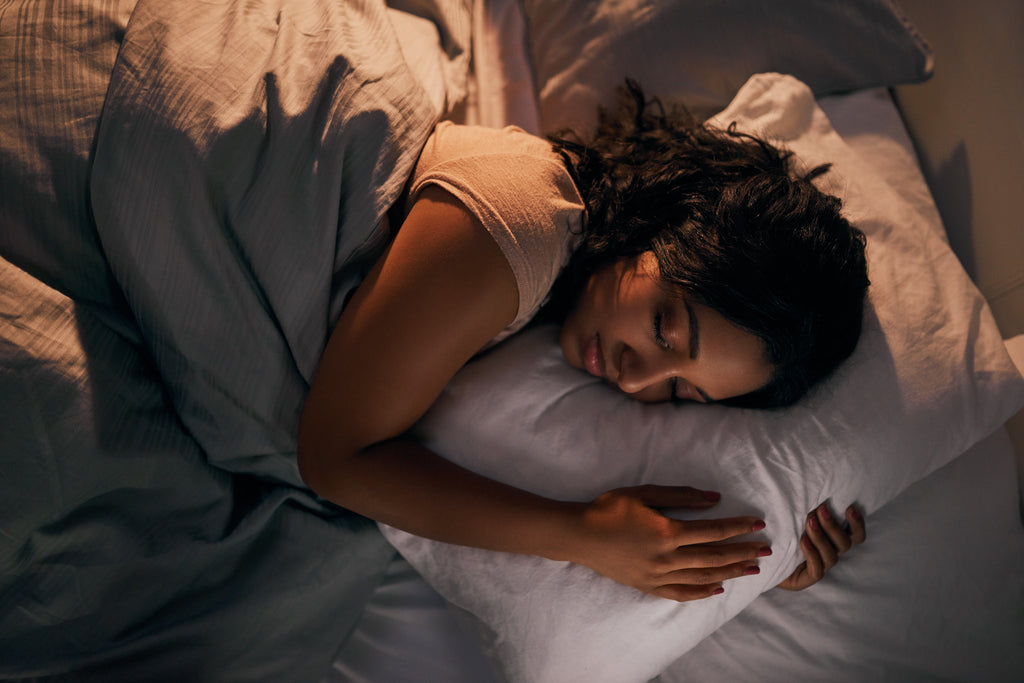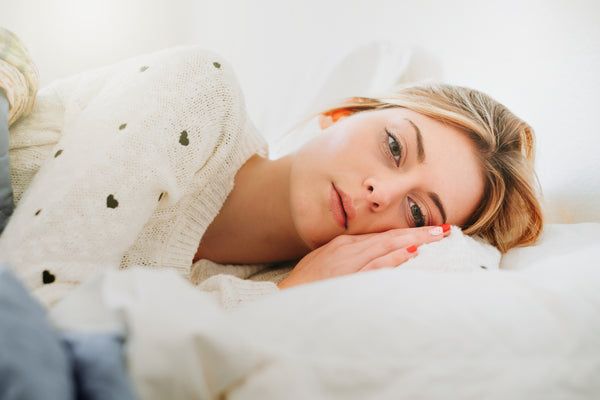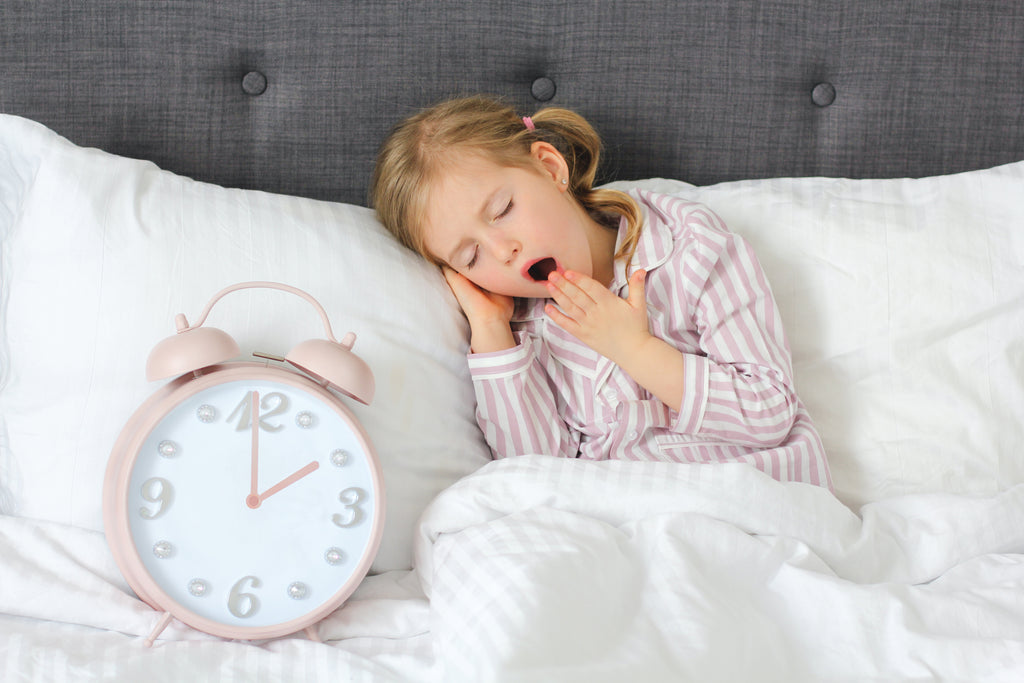
We all know that exercise, healthy eating and a good night’s sleep are key to our wellbeing, but did you know that what we eat can affect the quality of our sleep and how we have slept can affect what we want to eat.
How our Diet and Sleep are related.
Not getting enough sleep and feeling tired can make us more hungry
Yes, it is true. When tired we often want to eat more and often find ourselves reaching for energy rich but nutrient poor foods. A lack of sleep increases the release of the hormone Ghrelin which makes us feel hungry, whilst suppressing the release of the hormone Leptin that makes us feel full. Long term lack of sleep or tiredness is therefore linked to an increase in weight, which also increases the risk of snoring.
And what we eat and drink during the day can affect our ability to fall asleep
Our food and drink is made up of various nutrients which may influence our sleep patterns.
Eating certain foods can help you get in the mood for sleep whilst other can make you feel alert or wake you during the night.
Foods to eat, for a better night’s sleep
Foods that contain Melatonin
Melatonin helps your body know when to wake up and go to sleep, with Melatonin levels generally starting to go up about 2 hours before sleep.
Foods high in Melatonin include:
- Nuts and seeds including almonds, walnuts, peanuts, sunflower seeds and flaxseeds.
- Fruits and vegetables including banana’s, grapes, cherry’s asparagus and broccoli.
- Grains or oats
Foods that contain Tryptophan
Tryptophan is an essential amino acid found in many foods which plays a role in creating Serotonin. Serotonin is a neurotransmitter that effects our mood and helps to regulate sleep and is converted into the sleep hormone melatonin.
Foods that contain Tryptophan include:
- Dairy products including eggs, milk, low-fat yogurt and cheese
- Nuts and seeds
- Seafood
- Poultry
- Vegetables such as spinach, broccoli and asparagus.
- Fruit including kiwifruit, apples, bananas and avocado
- Beans
- Grains or oats
Many of these are protein rich foods, which on their own may not be enough. High protein meals can actually result in a drop of Serotonin because they contain not only Tryptophan but a number of other amino acids all of which are competing to make their way into the brain.
Eating a light carbohydrate can assist. Carbohydrates trigger the release of insulin which causes amino acids, but not Tryptophan to be absorbed into the body. Tryptophan remains in the bloodstream at high levels and can then enter the brain and cause Serotonin levels to rise.
Foods that contain Calcium
Dairy products that contain both Tryptophan and Calcium are also good sleep inducers
"Calcium helps the brain use the amino acid tryptophan to manufacture the sleep-inducing substance melatonin. This explains why dairy products, which contain both tryptophan and calcium, are one of the top sleep-inducing foods." – Medical News Today
Some good sources of Calcium which include Tryptophan are:
- Some greens including broccoli
- Dairy products
- Nuts including almonds
- Beans
Foods that contain Vitamin B6
B6 also aids in the production of Serotonin and Melatonin. Deficiencies in the Vitamin B6 have been linked with lowered Serotonin levels, poor-quality sleep, insomnia and depression.
Vitamin B6 can be found in
- Nuts and seeds including sunflower seeds, pistachio nuts and flaxseed
- Fish including tuna and salmon
- Meats including chicken, lean beef and lean pork
- Some fruits including banana’s and avocado
Foods that contain Magnesium
A lack of magnesium has been linked to increased stress and anxiety levels and difficulty going and staying asleep.
Magnesium can be found in:
- Nuts and Seeds
- Fish
- Some dark leafy greens including spinach and kale
- Some fruit including bananas and avocado’s
You may also consider a drink of Chamomile Tea
Chamomile tea is a well-known remedy for a good night’s sleep, helping calm the brain and body Chamomile Tea is rich in an antioxidant called apigenin.
And adding a teaspoon of raw honey Honey, restocks the liver with Glycogen which our brain users for energy. If glycogen is low the brain can wake us up telling us we need to eat. The natural sugars in honey also slightly raise insulin levels which help Tryptophan to enter the brain.
Milk
Many of us grew up with our parents telling us a warm glass of milk would help us sleep. Just this association may help you relax and prepare for a good night’s sleep. But there is also scientific evidence of the benefits of milk before bed. Milk is a natural source of the sleep inducing Tryptophan amino acid.
Food and drink to avoid, if you want a better night’s sleep
Caffeine
A naturally occurring stimulant, caffeine can be found in many food and drinks including coffee, tea and chocolate. While caffeine may give us a much needed wake-up or boost during the day, it can also affect our sleep and contribute to us feeling more tired the following day.
If you are drinking or consuming large amounts of caffeine consider cutting back. Just don’t stop suddenly, gradually cut back. If your body is used to caffeine as stimulant, simply stopping may give you headaches.
Try having that last one at different times to see what works best for you because as recognised by the Sleep Health Foundation
“There are different views on how many hours before bed you should have your last caffeine intake. Some say caffeine should be avoided for at least 3 to 7 hours before going to sleep. Others say no caffeine after lunch time if you have sleep problems. Many people find that their sleep improves with less caffeine or only having caffeine earlier in the day.”
Alcohol
Although Alcohol can make you feel tired and help you fall asleep faster it is disruptive to the amount and quality of your sleep. It may stop you from entering into the deeper and restorative stages of sleep and it is associated with one waking up more regularly in the night. It is best to avoid alcohol for at least 4 hours before bedtime.
Spicy Foods
Spicy foods are known to cause heartburn, indigestion and acid reflux, which may be made worse by lying down. The Sleep Council UK also recognize that research has found that spicy foods
“brought about a change in body temperature which can confuse the brain, as core temperature naturally dips as bedtime approaches.”
Foods High in fat
Fatty foods have been linked to poor fragmented sleep patterns and can also trigger acid production in the stomach leading to heartburn and indigestion.
Foods that have a high water content and are natural diuretics.
Natural diuretics elevate the rate and need for urination and you don’t want to be woken in the night needing to go to the bathroom. Foods that are natural diuretics include watermelon, celery and cucumber.
Large or protein heavy meals before bedtime
Avoid eating a large meal, or a meal heavy in protein, too close to bedtime and allow at least 2-3 hours between your last main meal of the day and bedtime. A small snack is ok. Going to bed with a full tummy will cause your body to focus on digesting rather than sleeping.
Remember that along with regular exercise a healthy balanced diet will help improve your sleep and energy levels.
Note: The lists above are not exhaustive and if regularly having trouble sleeping you should consult your doctor.
Sleep Well, Live Well











